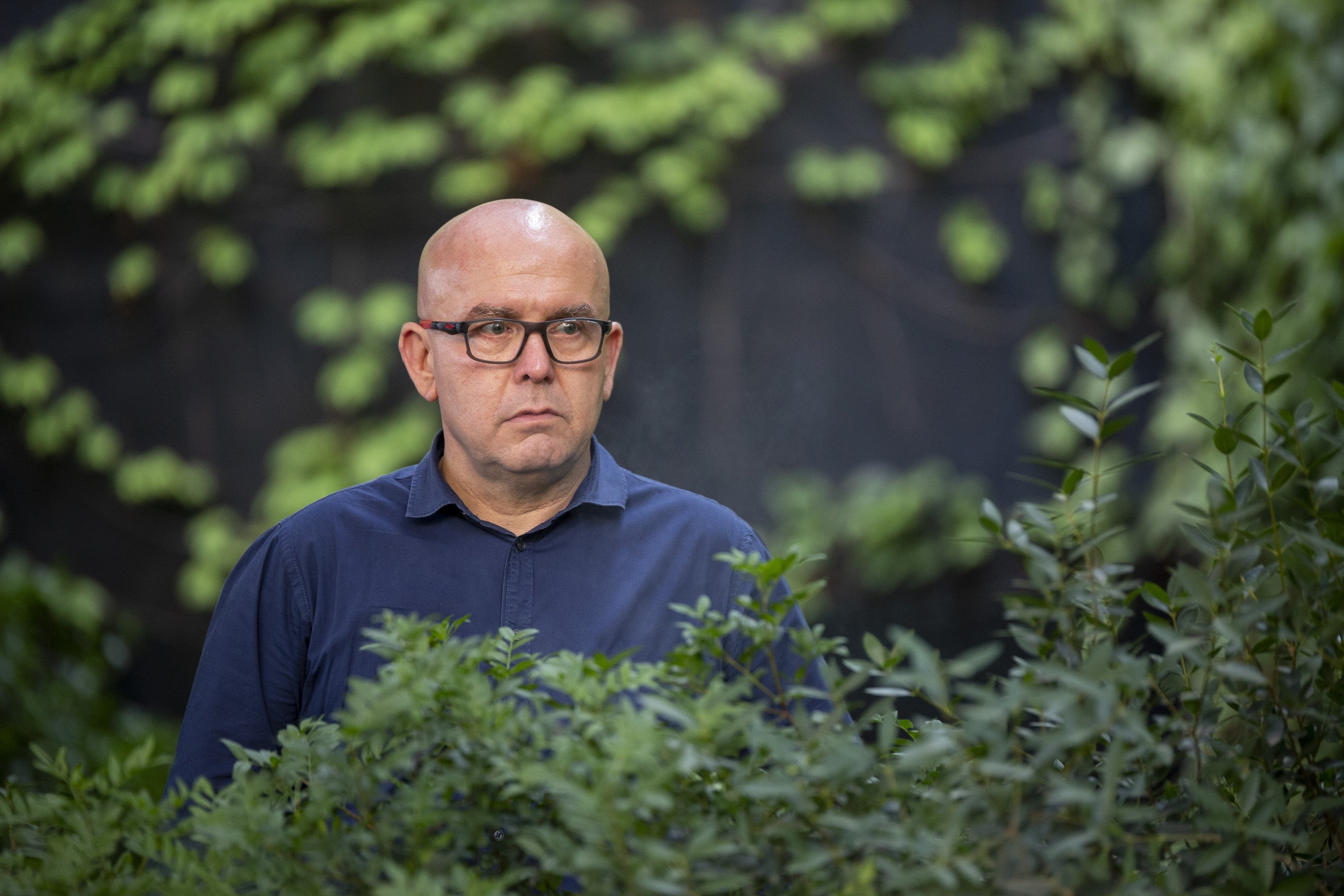Gonzalo Boye (Viña del Mar, Chile, 1965) is a lawyer with a catchphrase. Defending Catalan president Carles Puigdemont, he has to have a certain public presence, but is famous for being only so open, then keeping the rest of his cards close to his chest with an "y ahí lo dejo" ("and I'll leave it there").
In this conversation with El Nacional, however, he goes into surprising depth as to the current state of the case against the Catalan pro-independence leaders. With the verdicts and sentences in the Supreme Court trial just around the corner, he's certain they'll be harsh, and he has few hopes for pardons or an amnesty. We also broach more personal matters, from his own years in prison to how the fame inherent in defending a president in such a high-profile case has changed his life.
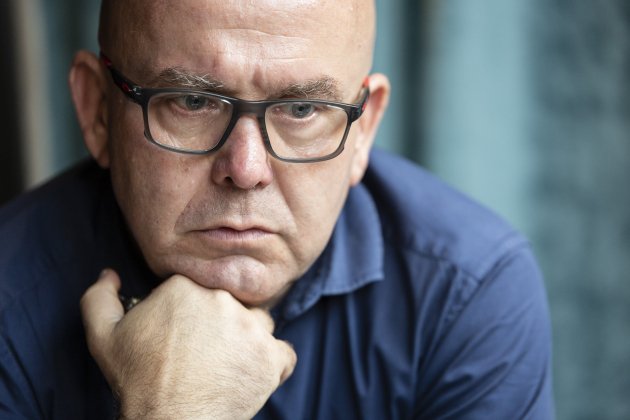
Holidays?
No, not this year. Nothing until Christmas. We have to get ready for everything that's to come in September and October.
Was what happened in early July at the European Parliament a blow to your international legal strategy?
There are two things. Maybe we've made communications mistakes, but on the legal side of things we never thought that they would accept the precautionary measures. The thing is you can't present it as a question on a substantive issue without first presenting precautionary measures because you leave it as if it weren't urgent. And the matter is urgent.
Maybe we've made communications mistakes
You mentioned communications mistakes: were the expectations communicated to the public handled badly?
Probably on my part, yes. Especially on the temporary, not on the underlying matter, because on the underlying matter we're very aware that we're in the right, that we're finding the way to explain it and that in the end we'll be able to prove it.
So you believe Puigdemont and Comín will be able to take their seats in the European Parliament?
I don't just believe it, I'm convinced. Maybe we haven't been able to explain or calculate the timescales well. But remember that all of this started at the end of October '17. For the whole month of November '17, they were laughing at us when we said that Belgium wouldn't extradite him and in the end the laughter ended. When president Puigdemont was arrested in Germany, the same thing happened, they were laughing again, saying that Germany was plotting the course for the return of the fugitives, that Germany would hand him over because it was a friendly country. It took us four months in Germany to solve the problem, but we solved it, we solved it with very good prospects looking forwards, not only for Puigdemont but for all the exiles and prisoners. I haven't been able to calculate the timescales, but on the rest we still think the same.
Would you be so bold as to give a timescale now?
I think that out of prudence and respect it's better that I don't give timescales, but I believe we're in the right. So much so that in the world of law nobody doubts that they are deputies who were elected and proclaimed such and that what we're trying to overturn is an arbitrary decision by Mr Tajani.
No one will like [the sentences]. They won't be as harsh as some would like, nor as lenient as we would like.
How will the sentences from the Supreme Court affect those in exile?
There's a conviction on the part of the Supreme Court and the Public Prosecution Service that with their sentences in hand they'll have to resend the European Arrest Warrants, and that they'll manage to get them back. Already in June '18, we said that there would be a third Warrant and that it would be after the trial. They will definitely try it.
And are you worried about the idea of the European Arrest Warrants being reactivated?
No. In fact we've told them many times to activate it. We told [investigating judge] Llarena to do so. And 2nd July this year we told them to activate the Warrant to confirm whether there was immunity or not. And they didn't dare, they've just looked for backroom methods.
There's an underlying question: they're not getting that the problem is the details they give
What would happen if the European Arrest Warrant was reactivated?
We would appear before a court wherever they were: Belgium, Germany, Scotland... And we would start on the whole process. There's an underlying question: they're not getting that the problem is the details they give, which are unpresentable, so it doesn't matter how they dress them up, whether with an arrest warrant, during an investigation or after a sentence, the problem is the details.
What sentence are you expecting?
A harsh one. No one will like it. It won't be as harsh as some would like it to be, [for example] prosecutors and [far-right party] Vox, nor as lenient as we would like.
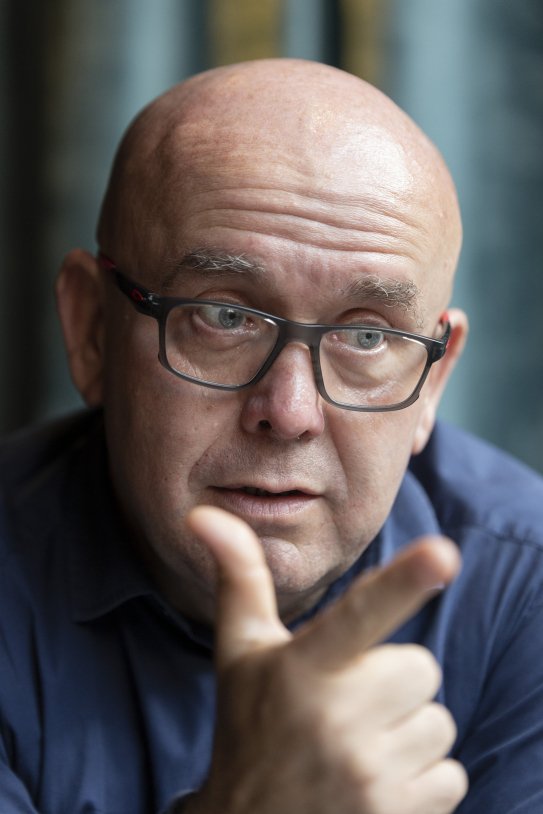
The Catalan government, and pro-independence parties and organisations have been debating for weeks what their response should be to the verdicts. How do you think the pro-independence movement should react?
The first thing is to have the maturity and serenity to accept it. Then, a framework for action needs to be established. For me, there are two red lines, one is individual releases, which there's no room for, and the other is violence. Between these two red lines there's a lot of freedom to act and I think that the path has to be fighting without violence.
"Individual release" means pardons?
Yes, the thing is I don't think it's a problem of nine people, it's a problem of Catalan society as a whole. They are in the dock and prison as representatives of Catalan society, not for having represented themselves. Let's not forget that there are many other trials to come.
They are in the dock and prison as representatives of Catalan society
So what do you envision?
People's mood is one thing and their level of willingness to act another. A majority of Catalans decided long ago that they want to live in a Catalan Republic. There might be a few who have given up. And there won't be any individual releases. Thinking that the Spanish state will foster any individual release, a pardon, is to be blind to reality. Can anyone imagine Pedro Sánchez taking a pardon order to the king? Because this is the path. First the Spanish government has to approve it, where you've still got Borrell and Marlaska. And then, who's got to take the pardon to the king for him to sign it? Once past this step, we know how the third chamber of the Supreme Court would react, which has powers to review a pardon. Suggesting a pardon is to not understand that the state would humiliate them again.
And do you see an amnesty as being viable?
I don't see any possibility of an amnesty, because it requires a very large legislative majority, it would require a consensus of the kind there was during the transition [to democracy after the Frenco era]. What's more, legislators tend to pass laws when they've got incentives [to do so] and it's hard for me to see what incentives the Spanish government could have to approve an amnesty law which, on the other hand, is nothing other than a general pardon. And the Constitution itself bans general pardons in article 62.
If there wasn't enough already, now there's a new case: the one against president Torra for disobedience...
President Torra hasn't disobeyed in any way. Because disobedience only occurs in a punishable sense when there's a clear, precise, specific and legal order. And those conditions weren't met here. Because the Central Electoral Commission asked president Torra to do something he couldn't do. So we'll see how it's resolved, but there's clearly political intent behind it.
You said there could be a few who have given up, but it doesn't seem that the parties' strategies are going in that direction...
I prefer to see what society says. And what it's saying is "not one step backwards". Politicians will have to end up adapting to what society says, whether they like it or not.
Can anyone imagine Pedro Sánchez taking a pardon order to the king?
Do you support Catalan independence?
No. I'm a democrat and I believe that citizens have the right to decide on their own future, the Catalan people have the right to determine their future, but this can involve independence or not. But they're not being allowed to vote. When I say I'm not pro-independence, basically it's because I was born in an independent country and it's very hard for me to think of having to keep fighting for independence and here we are.
You don't live in Catalonia...
No, in Madrid.
And if you lived here, do you think you'd be more likely to end up supporting independence?
The thing is that I share the essence of the values of what is called the independence movement in the Spanish state, which are democracy, the right to self-determination, an inclusive state... In fact, there's a lot of foreigners in the independence movement, because it's not exclusionary. That's a stigma the Spanish state has tried to attach to it, labelling it as xenophobic and racist.
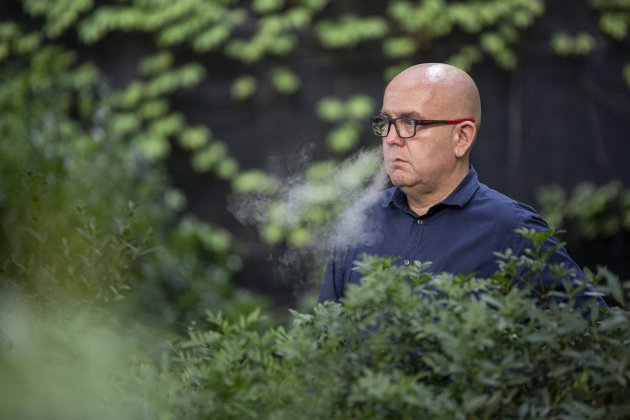
So, if there were to be a referendum, would you vote 'yes' or 'no'?
I don't know, to be honest. I think the Spanish state is doing everything for the independence movement to win.
One of PSOE's mantras is that everything is up for discussion, as long as it's within the law. Is it possible to reach independence within the law?
Without doubt. Only that PSOE limits it to Spanish law, but above Spanish law there are the international laws and the conventions and treaties signed by Spain. And within this international legislation, clearly independence, sovereignty and democracy can also be talked about.
But for the moment, nobody internationally has used these laws to force Spain's hand...
I mean, the international community is a car with a diesel engine, it takes time to get going. But they're realising bit-by-bit. The EU, for example, has a fundamental principle which is its respect for minorities' rights. The Catalan people, like the Basques, like the Galicians, like those from the Canary Islands, like Muslims, are national minorities in Spain and have rights which are not being recognised. It's a matter of time until we manage to have these rights recognised. And when the international community, specifically the EU, recognises these rights, Spain will have no choice than to decide whether it wants to be in or out of this community.
I share the essence of the values of what is called the independence movement in the Spanish state
Beyond being Puigdemont's lawyer, who is Gonzalo Boye?
A frustrated cook. I have great fun cooking, it relaxes me.
And what's your showpiece dish?
Ceviche.
Note: Ceviche is a South American dish of raw fish or seafood cured in citrus juice with various seasonings, varying from place to place, but often including chili pepper, sliced onion and coriander.
And have you cooked ceviche for Puigdemont yet?
(Laugh) Not yet. Some day we'll make him a proper barbecue and a ceviche, but first we've got to win and bring him home.
You said "frustrated". Why?
Because I discovered [cooking] very late. I come from a tremendously sexist society: my grandmother raised her granddaughters to help her cook and her grandsons to try the dishes they cooked.
Do you remember what you did on 1st October 2017, the day of the Catalan referendum?
Well, I was in Berlin. And it seemed mind-blowing to me what was happening. I'm very critical of how things were managed before the 1st October. It was a chronicle foretold. And as time has gone on, there's no doubt who was wrong and who was right.
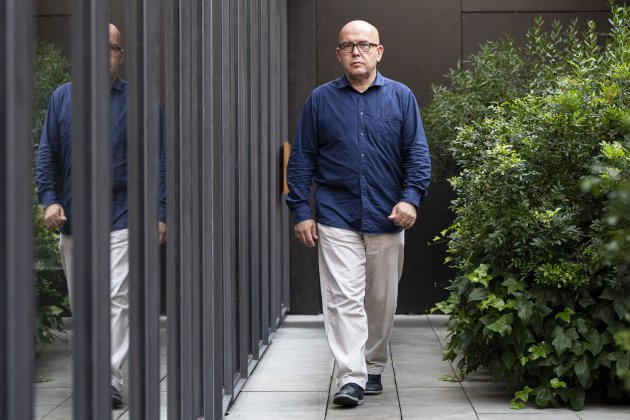
How has taking on the defence of president Puigdemont, following that famous call from Jaume Asens, changed your life
It's changed my life in that in Catalonia many people love me and in Spain many people hate me. It happened to me in Palestine when I was defending the Palestinians, but I wasn't living there. I live in Spain and in Spain there are many people who hate me, I know that well. We've had a lot problems, with my daughter for example, who was bullied. They also say things to us in the street. It's not the same thing to walk through Barcelona as to walk through Madrid when you're defending president Puigdemont.
And that hasn't made you think about leaving Madrid?
I've never run away from problems. When I left prison I could have returned to Chile and nobody would ever have reminded me that I was ever in there. Instead, hear in Spain, they remind me of it every day.
I live in Spain and in Spain there are many people who hate me, I know that well
Because you were found guilty and imprisoned for having collaborated with ETA in kidnapping a businessman...
Yes, and every time I open my mouth it's what they bring up.
You deny having had anything to do with it...
And I'll continue denying it. More than a quarter of a century later, it would make no sense to deny something like that. During the trial, they asked the victim himself, Mr Revilla, they asked him if he knew me from anywhere and he said no, that I hadn't taken part in it. I didn't take part in that kidnapping.
One of those who has brought up that sentence is now on your side, Beatriz Talegón...
Beatriz is a tremendously honest person. She was speaking without having met me and since we did meet we've had no problems. She also has a bad time of it Madrid, she faces tremendous criticism for defending the rights of the Catalan people.
You live in Madrid...
Yes, I have done for 30 years.
Beyond Spain, do you detect any respect for and understanding of what's happening in Catalonia?
No. We're in a situation where so much affection has been lost it's very hard to rebuild. If it were a matter of a couple who came to my office to ask my opinion, I would recommend they get a divorce, because not only has the affection gone, but the respect too. But as they're neighbours, the best thing to do is to learn to live together as neighbours, under separate roofs.
[The independence movement is wrong] to think that everyone acts in good faith
What has the independence movement got wrong?
Thinking that everyone acts in good faith. And the other thing it's doing badly now is shooting within its trenches. When you're at war, never shoot inside your own trench, shoot outwards. It seems sad to me that there are people debating whether Catalonia has to be left-wing or right-wing when what needs to be discussed is whether it should be. First, create the country, then decide what side it's on.
Will president Puigdemont return to Girona some day?
I think that at some time he'll be able to return, certainly. It's not a quick process, but president Puigdemont is everywhere in Catalonia even if he's not present [physically]. Wherever I go, people tell me to "look after our president". The state hasn't appreciated enough that demonising one person so much sometimes has the opposite of the desired effect.

